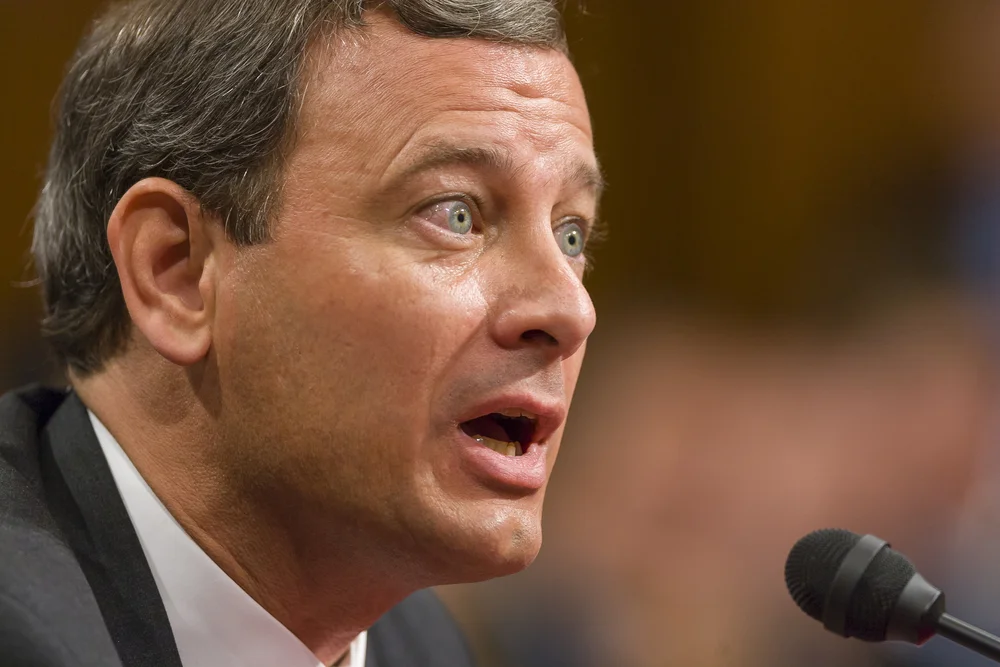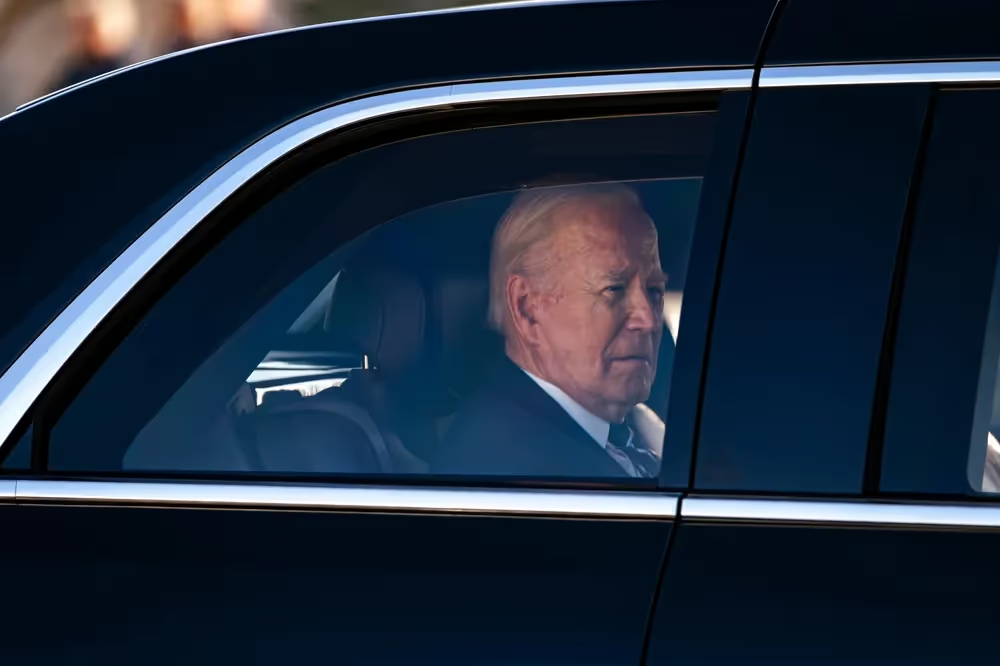
Of Pardons and Autopens
“ What did the President do, and when did he do it?”
During the Watergate Hearings, Senator Howard Baker became famous for asking the question, “What did the President know, and when did he know it?” Nowadays, the relevant questions are slightly different. By using the White House autopen to grant pardons rather than "sign" them himself, along with serious doubts about his mental ability to act as chief executive, former President Joe Biden has given us a slight twist on Baker’s questions, which have become, “What did the President do, and when did he do it?”
President Donald Trump changed many of Biden’s policies, but Biden took some concrete steps before leaving office that have had a carry-over effect on current events. Consider that Biden made 96 percent of his 4,245 clemency grants between October 2024 and January 19, 2025. That was the period when Biden granted pardons to people such as his son Hunter, other members of his family (such as his brother and sister), Dr. Anthony Fauci, General Mark Miley, and the members of the House of Representatives January 6 Commission for any federal offenses that each person might have committed. And that period was after Democratic Party leaders forced Biden to withdraw from the presidential race due to widespread doubts that he had the mental capacity to serve as President for another four years.
Sadly, it is not uncommon to see a President issue some dicey clemency grants toward the end of his fifth act. Bill Clinton is an oft-cited example. The Biden pardons raise several issues that threaten to upset some long-established norms to which even his predecessors paid some respect. The Congress, the U.S. Department of Justice, and the Trump White House are each investigating Biden’s clemency grants. Members of Congress and commentators have also challenged the legality of Biden’s late-term clemency awards. Biden recently tried to douse this fire by claiming that, as The New York Times quoted him saying, “‘I made every decision.’” Yet, Biden’s July 2025 interview with The New York Times suggests that he did not individually approve every pardon or commutation issued before he left office, which makes things worse for him. This issue is unlikely to go away anytime soon.
Lacking subpoena power means that I cannot answer the factual questions that are percolating throughout this controversy. Accordingly, in this essay, I will discuss the factual issues, although I cannot resolve them. I will answer two legal questions (one of which is working its way to the surface). And I will identify a proposal that might make it more difficult for future Presidents to avoid responsibility for clemency decisions.
Let’s start with the most serious issue.
Was Joe Biden Mentally Competent to Grant Clemency?
The controversy has arisen because (let me start out by being polite) Biden’s mental acuity slipped a bit during the last year in office, as evidenced by his inability to think and speak coherently during his debate with Trump. (OK, his mental acuity didn’t just dip; it nose-dived, and he face-planted on national television.) Fortunately, the nation made it through his remaining months without plunging into World War III (albeit perhaps only through divine intervention), and Biden will never again put the nation at risk. However, he issued a batch of pardons while packing up, and, if valid, they immunize the recipients against federal prosecution for the offenses that he forgave—assuming he was mentally competent to do so.
But was he? That is the question roiling Washington recently. The law does not allow someone to enter into a contract if he is suffering from a serious mental illness or disability. The standard of competency should be even higher in the case of the President than the one applicable to a party to an ordinary commercial transaction because the adverse consequences of a President’s mental incompetence are so much greater.
Answering that question would require a fact-intensive inquiry into Biden’s mental state. It would be crucial to obtain evidence from the staff and outsiders who met with him, particularly those who worked closely with him, as well as his family, friends, and physician(s). A House committee has begun interviews of such people in the know, but a few of them, such as Jill Biden’s chief of staff and Biden’s White House physician, have refused to answer questions by invoking one or more privileges, such as the Fifth Amendment Self-Incrimination Privilege (which, ironically, suggests that the stories of Biden’s incompetence might be true and that the persons subpoenaed have something to hide). That could hurt Biden’s case. As Justice Louis Brandeis once wrote, “Silence is often evidence of the most persuasive character.”
Litigation over privilege could take years to be resolved, even if the Supreme Court is willing to address it on its so-called “Emergency Docket.” Moreover, there is always a risk that politics will play a role in inquiries of this type, so such inquiries must be undertaken with scrupulous sensitivity to avoid abuse. The courts will be reluctant to allow such investigations to proceed if judges perceive them as being purely politically motivated fishing expeditions. Finally, Biden is suffering from an aggressive form of prostate cancer that has metastasized to his bones, and both it and any treatment could have a material effect on him (obviously), the progress of this inquiry (surely), and how the courts respond (likely). Accordingly, it is unlikely that we will have an answer to the question of Biden’s mental status in 2024 in the short term.
May a President Use an Autopen to Formalize a Clemency Grant?
The next issue does not involve such factual complications. In that regard, it is (or at least now appears to be) straightforward. Except for the pardon that Joe Biden granted his son Hunter, Biden did not personally sign any of his other later-term clemency grants. It appears that, at the direction of Jeffrey Zients, Biden’s chief of staff, the White House autopen—a widely used device that replicates a person’s signature on a document—affixed Biden’s name to tranches of pardons. That raises the issue whether a President may use an autopen to grant clemency.
To put this controversy to rest, Biden recently told The New York Times that he made every clemency decision. Biden said that, given the number of awards he would have had to sign, he used the autopen for the sake of efficiency. It performed only the ministerial function of affixing his signature to a document reflecting a decision that he had made, an act that he legally could allow the machine to perform.
May a President use an autopen to grant someone clemency? During the George W. Bush Administration, the Justice Department Office of Legal Counsel concluded that a President can use the White House autopen to sign a bill passed by Congress even though the Presentment Clause of Article I, § 7, cl. 2, provides that the President must “sign it for it to become a law. (I must say that, if it takes a 30-page memo to explain why the word “sign” doesn’t actually mean sign—without addressing the unique office that Article II created—you have (as some lawyers say) proven too much.) The Article II Pardon Clause has no similar requirement that a President must sign a “Clemency Warrant,” the name of the document officially recording a clemency grant (e.g., here). Accordingly, it would appear to follow that, while the President must make every clemency decision, the Constitution does not require a President to physically sign a clemency warrant.
That is a facially reasonable argument. Nonetheless, it does not hold up under scrutiny in this case, for several non-political reasons.
Start with the fact that the burdensome signature argument won’t fly on these facts. According to The New York Times, Biden justified using the autopen on efficiency grounds, stating that "we’re talking about a whole lot of people," so it would have been unduly burdensome for him to sign each separate clemency warrant. That claim, however, is quite misleading.
There is no “One man, one clemency warrant” requirement found in the text, or lurking in any penumbra, of the Pardon Clause. The Justice Department and White House Counsel’s Office could have listed multiple pardon and commutation recipients in one official document for Biden to sign. Biden’s use of an autopen, therefore, cannot be justified on efficiency grounds.
Biden also was not the first President to grant pardons on a widespread basis. Other Presidents—such as Abraham Lincoln and Andrew Johnson, who granted clemency to officers, soldiers, and sailors who fought for the Confederacy during the Civil War, as did Gerald Ford and Jimmy Carter for Vietnam War draft evaders and military deserters—followed that practice, known as granting “amnesty.” And if those practices were too long ago for Biden or his staff to recall, Barack Obama frequently signed clemency warrants containing a long list of names of people who received a pardon or had their sentence commuted, all done in one document on each occasion. So, even if the Biden White House staff did not think of this practice, Biden was Vice President to Barack Obama, who frequently used it, and the Biden Justice Department’s Office of the Pardon Attorney was certainly aware of it. Accordingly, there is no weight to the argument that Biden needed to sign thousands of documents. One would have been sufficient.
Besides, it is unclear just how involved Biden was in making those judgments. The decisions were made behind closed doors, with only Biden’s close advisors at hand. There was nothing comparable to the public, often televised, performances that Trump has regularly used when signing bills and executive orders. Biden is therefore asking the public to trust him that he made every such decision.
Even if we put aside the fact that Biden is a congenital liar (e.g., here, here, and here) on the ground that what would be a severe shortcoming in the character of an average person is often considered a job requirement to be a successful politician, there still is good reason not to trust what Biden said. Given Biden’s age and recently disclosed illness, his recollection might be faulty, or he might have confabulated what actually happened when he spoke to The New York Times. Biden may also struggle to corroborate his account of what happened by relying on the recollections of third parties. Plus, Biden’s former White House staff, acting out of a sense of loyalty, might be unwilling to further besmirch his reputation by acknowledging his shortcomings (or might be unwilling to poison their own political futures within the Democratic Party by diming him out), particularly if they publicly celebrated his candlepower from 2021 to 2025. Family members might circle the wagons around Joe to protect him out of personal affection or to protect themselves by ensuring that their pardons remain intact. The result is that this issue cannot be waived away.
Certainly, it is relevant in this regard that Biden and his staff could have taken certain steps to help document that Biden made the relevant decisions, not his staff. For example, the staff could have prepared for Biden a written summary of the reasons for and against clemency for each person on a list for his consideration, along with a list of every person that he should consider for clemency with a box for him to check if he agreed with the staff recommendation, whether yea or nay. (If checking a box for each person was too burdensome for Biden, he could have crossed out the names of each person not receiving clemency.)
If Biden used such memoranda and lists in his decision-making process, he could offer to make them public and ask President Trump to waive any claim of executive privilege, allowing them to be disclosed. If there was no such paperwork, if the summaries were oral, if Biden gave only oral responses, if there were other facts suggesting that the process was entirely informal, whatever those facts might be—then Biden is asking the public to trust him at a time when his case for trust—like that of every other politician—is at an all-time low point.
To be sure, autopen usage is common in certain settings, particularly when someone must send out a mass mailing for business, in politics, or during holiday time. Members of Congress use an autopen when sending constituents newsletters that report on what a representative or senator has done for the people back home. Political candidates do the same when soliciting funds. Private organizations do likewise when encouraging recipients to press government officials to take action that benefits the recipient (and the organization). And so forth. Purposes like those would raise no one’s eyebrows because there is no legal significance to the signature other than identifying who is speaking through the letter. Said differently, unlike signing a contract, which legally binds a signatory to do or refrain from doing something, putting your John Hancock on a piece of paper, whether to educate someone else about a recent political development or to encourage that person to act in a particular way, does not itself have any significance in the law except to identify the writer.
Yet signing a presidential clemency warrant does have legal significance. It means that the nation forgives someone for breaking the law and erases any legal consequences of a judgment by a coordinate branch of government, an Article III court. That is a big deal. We trust Article III courts to get it right. Of course, sometimes they make mistakes that need to be corrected, and sometimes a justly convicted offender deserves forgiveness. The Constitution trusts the President to make that call—not a member of the White House staff; not a subordinate in the Executive Branch, like the Attorney General; and not even an Article III judge, including the Chief Justice of the United States.
That takes us to these questions: What did Biden do? Did he sign clemency warrants understanding what he was doing? Did he decide each case and merely instruct his staff to use the autopen to formalize his decision? Did he merely articulate a standard that each potential recipient must satisfy to receive mercy, while telling his staff, literally or implicitly, to decide whether each person under consideration cleared that bar? How concrete was (or were) the standard (or standards) that Biden adopted? Was it concrete, such as “Was this person sentenced to death?” Or was it more abstract or vague, such as “Has this person been rehabilitated?” If the latter, doesn’t that allow a White House staffer to decide who merits clemency? And if so, doesn’t that raise this final question: Does Article II permit the President to delegate the Pardon Clause power to someone else? In my opinion, the answer is a clear, “No.”
May a President Delegate the Pardon Power?
It might surprise people to know that there are few restraints on presidential clemency. Consider the applicable positive law in this regard. Article II grants “[t]he President . . . Power to grant Reprieves and Pardons for Offences against the United States, except in Cases of Impeachment,” which mean that a President cannot pardon someone for a state crime or stop Congress from impeaching and removing someone from office. Other constitutional provisions, such as the First Amendment's Free Speech Clause, also limit the pardon power, for instance, by barring the President from requiring an offender to vote for their political party in exchange for mercy. Otherwise, the Constitution does not channel or guide a President’s clemency decision, a shortcoming I have identified elsewhere. The Supreme Court has never ruled that the President’s pardon power is limited or regulated in any way that is not apparent from the constitutional text.
There is also no subconstitutional restraint on the President. No statute regulates how a President may exercise the pardon power. Besides, if the Supreme Court meant what it wrote in Ex parte Garland that “[t]his power of the President is not subject to legislative control,” no statutory restraint would be constitutional. Finally, the Justice Department has an Office of the Pardon Attorney, and that office has guidelines for an applicant’s and its own use in advising the President on all clemency matters. But those guidelines are just that; they do not purport to constrain the President, and they could not do so in any event.
The bottom line is this: Effectively, the President’s clemency authority is the last surviving remnant for this nation of the English Crown’s power over our cousins across the pond, because there is no law that cabins a President’s power.
That is a norm that this nation has followed since its founding; only the President may grant clemency. A pardon represents the nation’s judgment that, regardless of what someone did, he should be forgiven for it. It is the President’s way of saying, “Neither do I condemn you; go and sin no more.”
The flipside of that judgment is that the President himself must decide whether someone deserves a pardon. It means that the President cannot delegate clemency decision-making authority to anyone else, whether to the Vice President, the Attorney General, the White House Chief of Staff, or the President’s wife. The buck stops at the Resolute desk.
The Constitution supports that conclusion. Start with the text of Article II. Significantly, the President’s pardon power is found in the same provision—Section 2, Clause 1—that contains the Commander in Chief Clause, which vests ultimate supervisory authority exclusively in the President’s hands. Similarly, the President’s Article II, § 3, Reception Clause authority to decide which foreign governments to recognize as legitimate is also exclusively his to exercise, as the Supreme Court held in Zivotofsky v. Kerry. That is significant because other presidential powers—such as the treaty-making power, the appointment of ambassadors, federal judges, and federal officers—are also the President’s to exercise, but he must obtain the Senate’s “Advice and Consent.” No similar restraint is placed on the President’s Pardon Clause authority. That makes for a compelling argument that only the President should have the authority to grant clemency to someone.
There are some straightforward, easy, nonburdensome steps that future Presidents could take to lessen these risks. One is to follow Trump’s example when signing a bill into law: invite the press into the Oval Office so that it can watch, report on what is done, and perhaps ask the President a few questions about why he was being merciful. Or the President could film his signing of clemency warrants and file the recordings in the presidential archives. After all, Presidents are TV hounds. No mentally competent President would refuse the opportunity to appear on the nightly news in a positive light by demonstrating a compassionate soul.
One potential benefit of the ongoing congressional inquiry could be the passage of a statute requiring the recording of clemency-signing ceremonies. That requirement won’t prevent a President from delegating decision-making authority to someone else; the signing ceremony could be just a recorded sham, akin to what Karine Jean-Pierre called a “deep fake.” But sometimes formal procedures have important benefits. A recording would offer a public display of a President’s generosity, and it would add to the public’s respect for the process. That requirement also would not burden a President. After all who wouldn’t want a permanent record of being merciful?
Where does that leave us? Most of the questions that require answers are factual, not legal, although the latter may be more important in the long run. We might luck out, however, and prevent, or make more difficult, any repeat of what might have happened during the tail end of Biden’s term. Yes, the White House staff that Biden used for clemency purposes might have had more candlepower than he did. They might have had more experience in operating the criminal justice system than Biden did. They might have had more relevant life experience and savvy than Biden did. And they might have been fully competent to act as President if they had been elected chief executive, as Biden might not have been. But none of the staff took the oath of office; only Biden did. If he was not mentally competent to make those calls, or if he did not make them, the pardons and commutations that went out under his name were not valid.
We need to find out what happened to answer those questions. We also need to improve the process so that these problems do not arise again tomorrow.
Paul J. Larkin is the John, Barbara, and Victoria Rumpel Senior Legal Research Fellow in the Meese Center for Legal and Judicial Studies at the Heritage Foundation.
Constitutionalism

Amicus Brief: Hon. William P. Barr and Hon. Michael B. Mukasey in Support of Petitioners
Former AGs Barr and Mukasey Cite Civitas in a SCOTUS Brief

Rational Judicial Review: Constitutions as Power-sharing Agreements, Secession, and the Problem of Dred Scott
Judicial review and originalism serve as valuable commitment mechanisms to enforce future compliance with a political bargain.

Supreme Court showdown exposes shaky case against birthright citizenship
Supreme Court will hear challenges to Trump's order ending birthright citizenship, testing the 14th Amendment's guarantee for babies born in America.
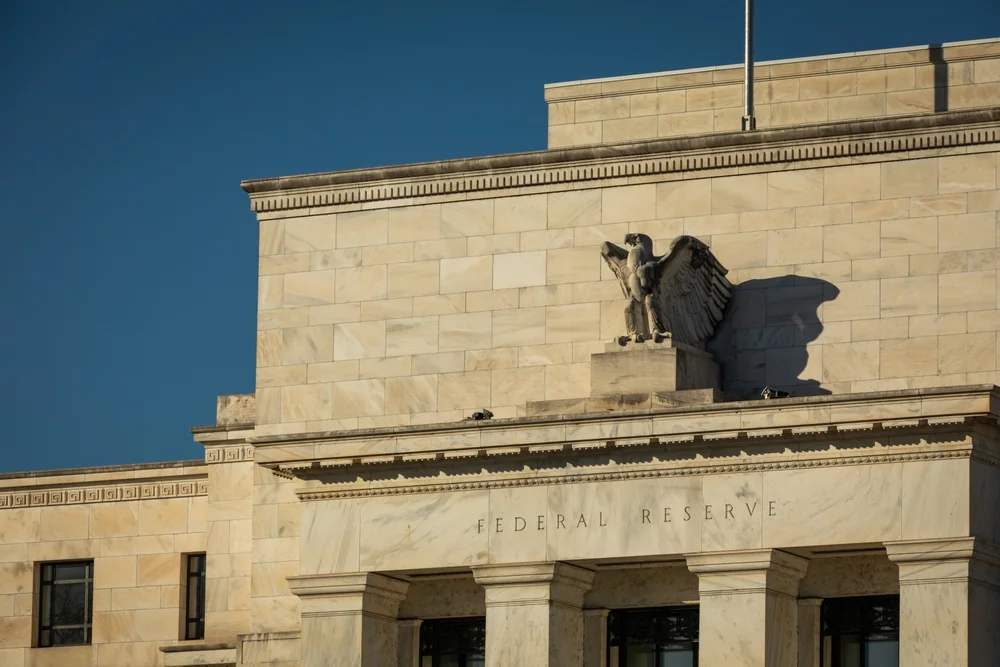
Why Is the Federal Reserve Special — and Just How Special Is It?
How does the Fed fit into the Court's reform of the administrative state?

Kneecapping Powell, Undermining the Rule of Law
Donald Trump and conservatives know the perils of lawfare all too well. Why subject Jerome Powell to the same thing?


.avif)







.avif)
.avif)
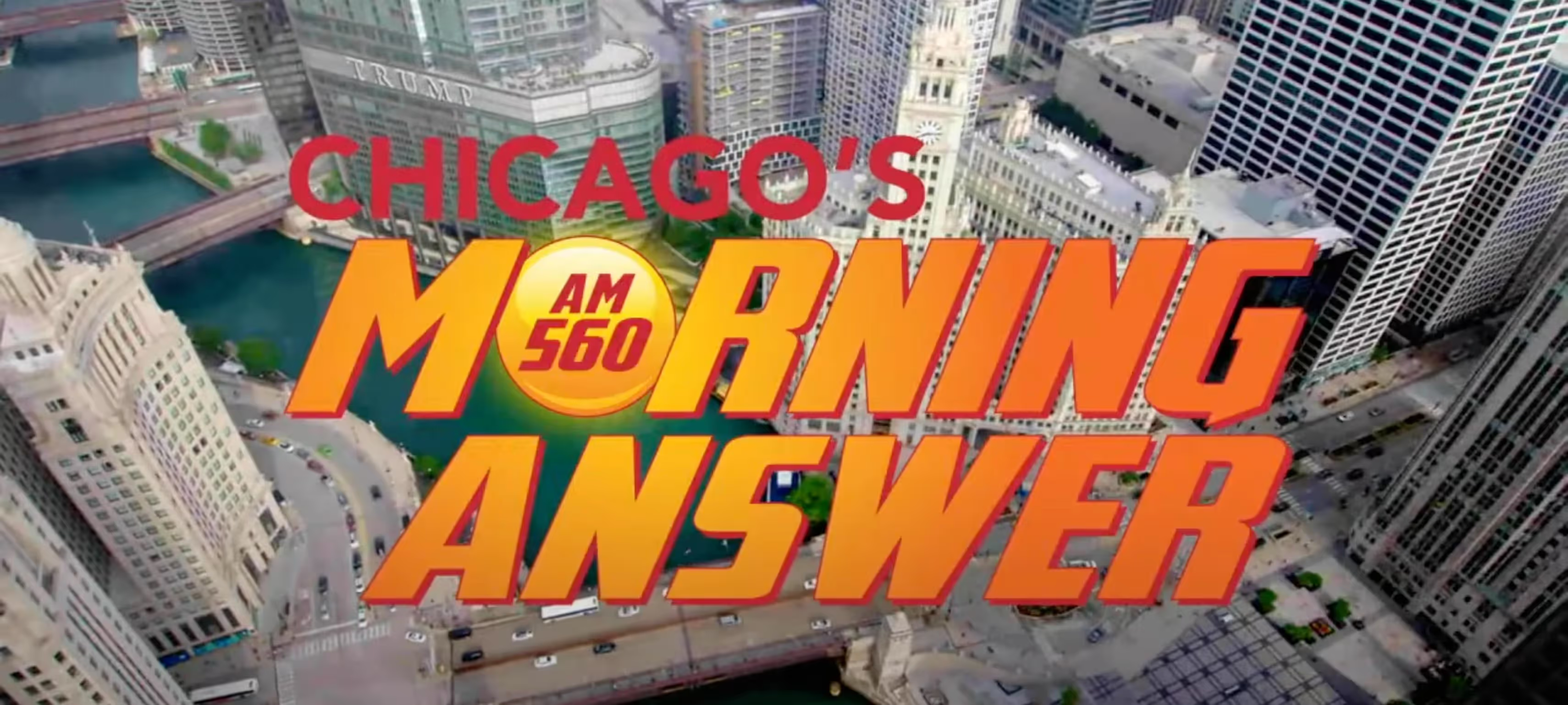
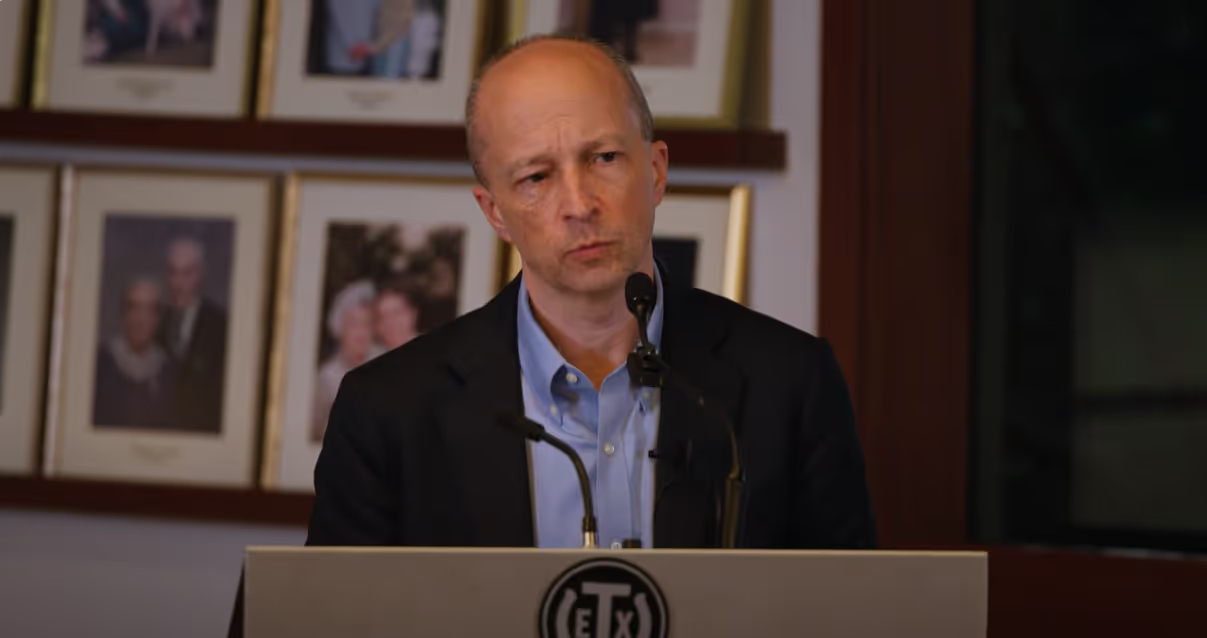
%20(1).webp)
